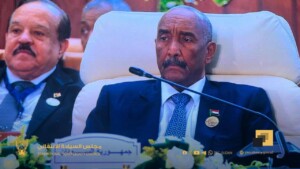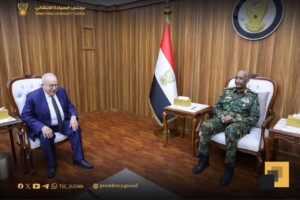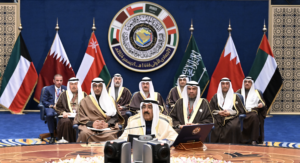Khartoum, rebels accuse each other of aid delivery abuse
The delegations of the Sudanese government and the armed movements accused each other of being responsible for the failure of the peace negotiations in Ethiopia this week. The talks have been suspended.
The delegations of the Sudanese government and the armed movements accused each other of being responsible for the failure of the peace negotiations in Ethiopia this week. The talks have been suspended by the African Union mediators.
“They did not want to specify the locations of their troops,” Amin Hassan Omar, leading the Khartoum delegation on the Darfur issue, criticised the rebel groups. “They want to turn the cessation of hostilities agreement into an opportunity for the redeployment of their troops.”
At a press conference in Khartoum on Wednesday, Omar underscored that the Doha peace agreement of 2011 is the basis for the completion of the peace process in Darfur. The government does not seek to launch a new peace process for the conflict region.
The head of the Sudan Liberation Movement (SLM-MM), Minni Arko Minawi, accused the government of only attending the round of peace talks in Addis Ababa to explore the positions of the other parties on certain issues.
“The government has failed to market the Doha peace agreement and a reference document to resolve the Darfur issue. It reneged the main purpose of the meeting: to negotiate a ceasefire and to deliver humanitarian aid.”
No aid via South Sudan
During the talks, Khartoum categorically rejected the delivery of humanitarian aid to South Kordofan and Blue Nile states via South Sudan or Ethiopia, as proposed by the Sudan People's Liberation Movement-North (SPLM-N). Sudanese presidential aide and chief negotiator for the 'Two Areas' peace track, Ibrahim Mahmoud, said on Wednesday that the SPLM-N seeks to exploit the delivery to support hostile acts against the Sudanese government. “The government will not allow this.”
“The Sudanese government wants to use the aid delivery to the Two Areas to enter its troops into the rebel-hold areas.”
The SPLM-N claimed that the government aims to use the aid delivery to enter the rebel-hold areas, and enter its troops. Leader of the delegation, Yasir Arman: “The SPLM-N therefore wishes multiple paths for relief assistance, set up under international humanitarian law.”
Meanwhile, Sudan's Minister of Defence, Ahmed Awad Ibn Auf, said that the military plan of next summer aims to defeat all rebels in the Two Areas and East Jebel Marra in Darfur, and relieve Kauda in South Kordofan of insurgents.
Arman commented: “The government moved dozens of tanks from Kadugli and Talodi, while negotiating its way to Kauda. There was significant fighting in Blue Nile before the negotiation sessions, that exposed the government's schemes.”
Ahmed Tugud Lesan, a leading delegate of the rebel movements, explained that there are “fundamental differences” with the government, such as on the monitoring of a ceasefire. “The government's delegation objected to any role of the Unamid to monitor a cessation of hostilities,” he told Radio Dabanga in an interview.
The discussion of a cessation of hostilities in the Two Areas and the delivery of humanitarian aid were "top priorities" during the negotiations, according to Arman in October.











 and then
and then